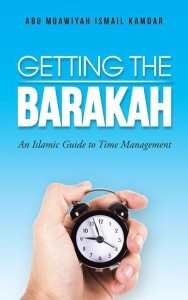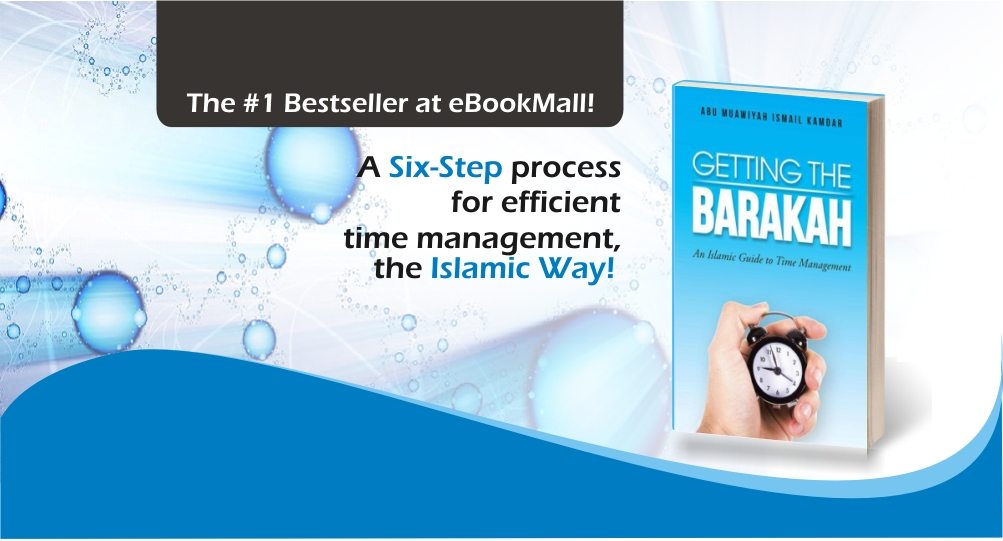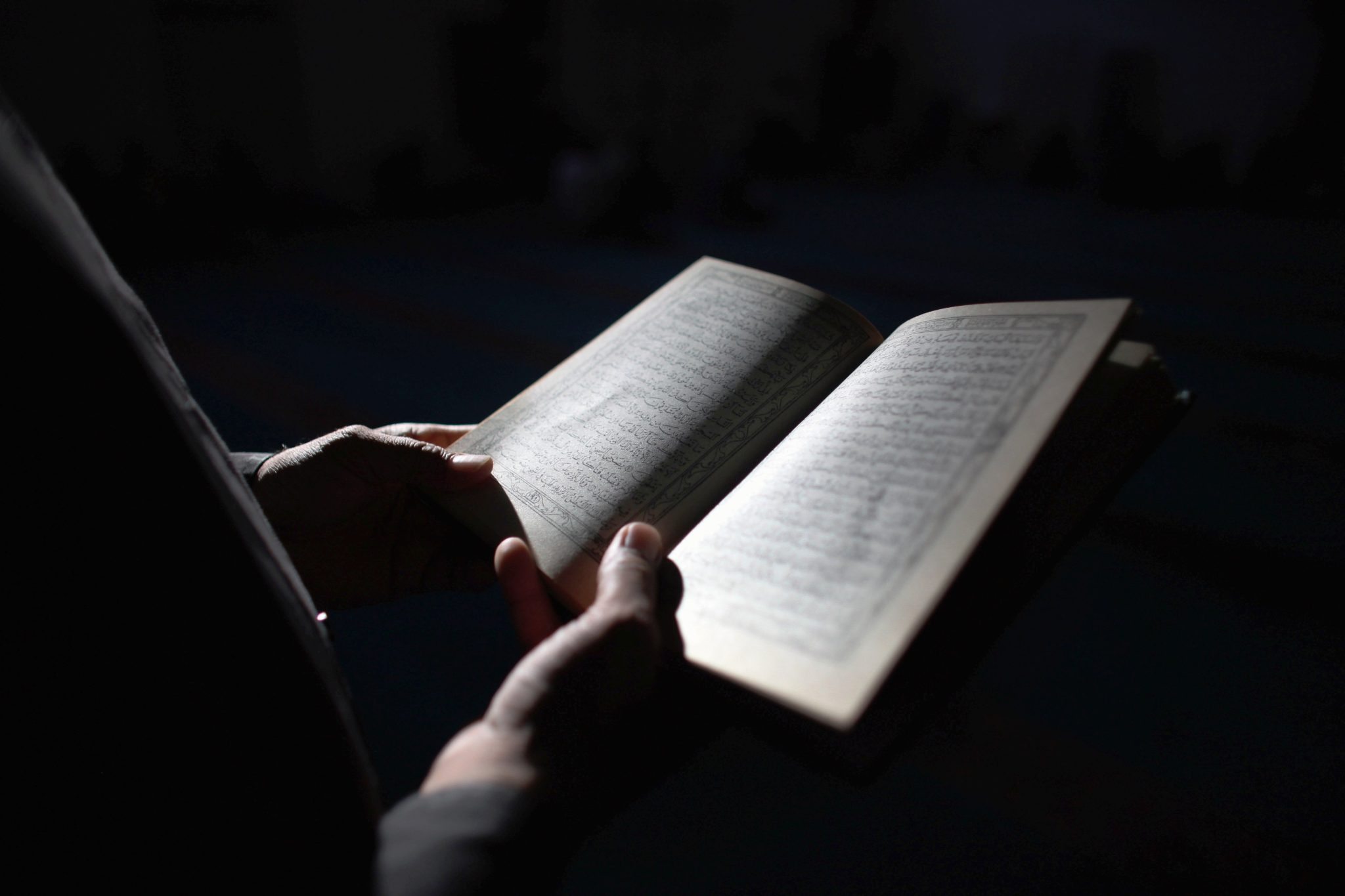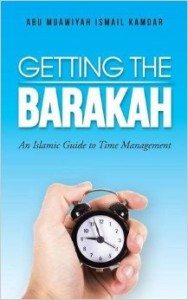Discovering Personal Development
This is the story about how I discovered Personal Development. It was around the beginning of 2011 that I found myself in a dilemma. I had a really wonderful new job as a TA at the Islamic Online University but was a bit overwhelmed by the workload and found myself dealing with people from cultures which were foreign to me, and thus making a lot of mistakes in my interaction with them. I was reflecting over the situation and trying to think up solutions.
Keep in mind that back then, I was just teaching four courses for IOU and some local Arabic classes for Deen Class, which is nothing compared to my current workload which includes teaching five courses for IOU (which much larger student numbers), being the Head TA at IOU, blogging, writing books, running this website, formulating strategies to attain my goals, lecturing weekly on Radio Al-Ansaar, writing for Al-Ummah Magazine and IOU Insights, and homeschooling my children, Alhamdulillah.
So what happened that helped me make this transition and fill my day with even more projects than I thought was possible? I discovered the joy and excitement of personal development.
It was in early 2011 that I decided, after ten years of almost only studying Islamic material, that it was time to focus on other fields of study. More specifically, to focus on developing habits and skills to help me become more efficient and a better person. This focus on continuously striving for excellence is actually a forgotten Sunnah called Ihsaan, but that is the subject of another post, inshaa Allah.
The first thing I did was read two self-help books which every young person should read, ‘How to win friends and influence people’ by Dale Carnegie and ‘The 7 habits of Highly Effective People’ by Stephen Covey. In these two books alone, I had learned such life-changing ideas that I became addicted to personal development. So began what is now a life-long journey of personal growth, as every year I find myself discovering things which help me to accomplish more and more on a daily basis.
In the past five years, I have read books and studied courses in Leadership, Inspirational Leadership, Psychology, Management, Social Psychology, Counseling, Educational Theory, Public Speaking and many more fields and every step helps me in my quest to become a better person.
Let me give you just three examples of things I learned that changed my life forever:
1. Scheduling
This is something heavily emphasized as one of the 7 Habits in Stephen Covey’s book and it has become a crucial part of my lifestyle. I have designed a weekly and daily schedule breaking down the day in hourly chunks and scheduling everything from sleep time, to family time, to personal time.
As a result, I am able to utilize every hour of the day in a productive manner, because even getting adequate sleep is productive. It is truly amazing how much time is wasted on movies, video games, surfing the internet, etc if we don’t hold ourselves to a tight schedule. Scheduling is now a permanent part of my lifestyle and something I encourage everybody to do.
2. Delegating
This process was highly emphasized in many books that I read so I decided to give it a try. My website Abumuawiyah.com is a result of delegation. Every aspect from the recording of the MP3s, the editing of the MP3s, the logo design, the website design and the hosting of the website were all done by other than myself. By delegating these tasks to people who are good at them, I was able to focus on other projects while knowing these things are getting done, and professionally too.
Even now, I have many of my important projects delegated to people I trust, thus allowing me to accomplish even more in a day than I thought was possible. Learning to delegate has bought me a lot of time which to me is the most valuable commodity.
3. Speed-listening
I ha’ve already been speed-reading since I was a child, Alhamdulillah. However, in December 2012 at a leadership retreat, life coach Junaid Bayat taught us that if you listen to a lecture at speed 2X (you can do this using VLC Player), you still hear everything clearly, remember everything, and accomplished the task in half the time. I was really excited to learn this so I went straight back to my room to try it out.
The result: I never went back to listening to lectures at normal speed again, and am now able to listen to four hours of lectures in two hours and still benefit from every minute. This is a huge time saver, and has helped me to study twice as much in a day than I previously thought was possible!
The above three are just three examples of the many things I have learned over the past three years. I hope it is enough to get you interested in personal development too. Focusing on constantly improving yourself is a choice you can never regret.
To end, here is a list of some resources to help you get started on personal development. Please feel free to add your own as I am always looking for more resources:
The books and courses offered by Dale Carnegie institutes are amazing resources for personal growth. I was initially introduced to this institute by my late friend Feroz Ganie. (May Allah reward him for all the good I gained through his suggestion) Although I never attended any of their courses yet, I have benefited greatly from the books published by them, especially ‘How to win friends and influence people’.
2. The books of Stephen Covey, especially ‘The 7 Habit of Highly Effective People’ which is guaranteed lifestyle changer.
3. The books of Mirza Yawar Baig, especially ‘An Entrepreneur’s Diary’, ‘The Business of Family Business’ and ’20.10.2010-55′ (strange name but amazing book).
4. Productive Muslim – This website is an amazing resource for Muslims who want to improve productivity.
5. Mind Tools – another amazing website with many great articles on personal development in multiple fields.
6. Coursera – This website contains hundreds of free courses in every field of study. I usually sign up for a course of interest to me, download all the lectures and listen to them at speed 2X. Thus far, from this website I have studied Inspiration Leadership, Psychology, Public Speaking, Educational Theory and many more interesting courses.
7. Islamic Self Help – Home to my articles and books all dedicated to sharing my tools and techniques for personal development the Islamic way.
I hope this post convinces you to invest in yourself. Remember that money and time spent on improving ourselves is never wasted, and we always end up profiting multiple times over. Feel free to share your personal stories, tools and resources in the comment section so we too can benefit.
Shaykh Ismail Kamdar is the author of Having Fun the Halal Way, Getting The Barakah, and Best of Creation: an Islamic Guide to Self-Confidence.








